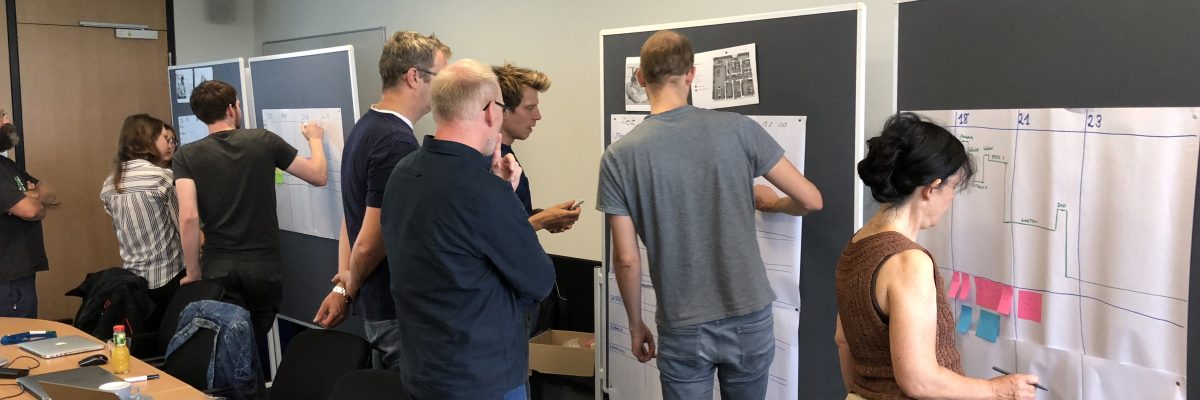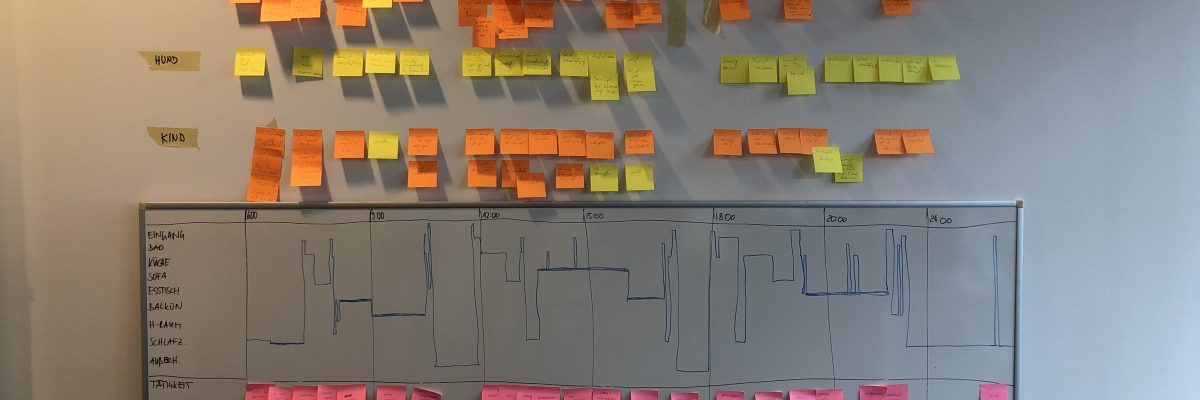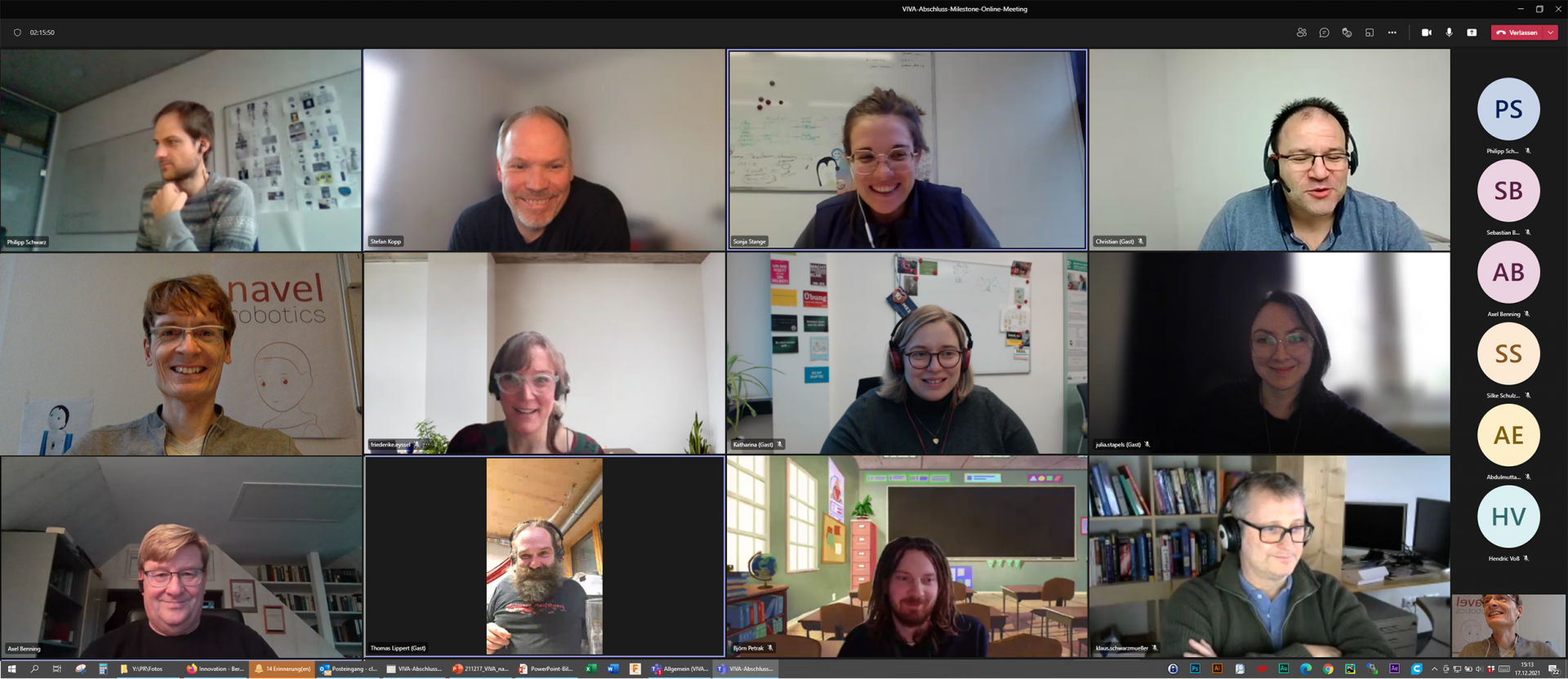
VIVA
The research project aiming to develop a social robot from scratch and the social robot itself share the same name: VIVA.
In VIVA’s implementation navel robotics leads the research consortium of six partners coming from industry and academia. The project is funded by the Federal Ministry of Education and Research (BMBF) as part of the research programme “Bringing Technology to People”.
Background
Robots will work more and more closely with us humans and will make their way into our private households through their usefulness. This requires a new quality of interaction and trust in such machines. We humans create the trust and sympathy required for living closely together through continuous social interactions. To be accepted in a private environment, robots must therefore have social competence and show “lively” sympathetic behaviour.
Aim of the project
The goal of the project was the development of a social robot (VIVA), rises the emotional state of the user and grows his trust through a vivid presence and sympathetic interaction. VIVA thus becomes an attentive and empathetic roommate. She recognizes user’s emotional and mind states and reacts sensitively to them. VIVA actively initiates a dialogue, asks questions and can “small talk” to increase the well-being of the user. She wants to get to know the social structure of the user and encourages them to cultivate it.
The design and implementation of such a robot requires a highly interdisciplinary approach in which scientists, engineers and designers work together on complex technical, social, ethical and design issues and test solutions with users.
The innovative, highly dynamic quality of interaction is geared to people’s needs and realized with an optimized, holistically developed hardware-software architecture including machine learning. Because sympathetic robots with social competence will be better accepted in the private environment.
coordinator
navel robotics GmbH
Munich, Germany
Claude Toussaint
Agnes-Pockels-Bogen 1
80922 Munich, Germany
claude.toussaint(at)navelrobotics.com
project volume
€ 2.67 million (of which 85 % BMBF funding)
project duration
10/2018 – 12/2021


Results of the project
The project was successfully completed in December 2021. Due to the Corona pandemic, the project could not be implemented 1:1 as originally planned. Thus, collaboration and user evaluations took place mainly via video calls from 2020 onwards.
A total of 2 design prototypes, 3 Ballbot prototypes, and 3 generations of the VIVA interactive hardware prototype were developed.
In addition, the cognitive architecture was continuously developed and tested on the Pepper hardware platform.
Evaluation studies were mainly conducted online. This included the use of previously created movies and interactive AR simulations. A total of 9 evaluation studies and 5 methodological studies were conducted to evaluate aspects such as acceptance, ambivalence, trust, design, approach behavior, dialog strategies, etc. In addition, field studies were conducted with Wizard-of-Oz prototypes in elderly care homes and with autistic children. Most of the studies were published by the respective project partners.
Selection of some publications:
- Ambivalence in Attitudes towards Robots
- Effects of a Social Robot’s Self-Explanations on How Humans Understand and Evaluate Its Behavior
- Robocalypse? Yes, Please! The Role of Robot Autonomy in the Development of Ambivalent Attitudes Towards Robots
- VIVA-Ambivalence towards and potential use of a newly developed social robot
- To move or not to move? Social acceptability of robot proxemics behavior depending on user emotion
- Do you mind if I pass through? Studying the appropriate robot behavior when traversing two conversing people in a hallway setting
The final meeting was held on 17.1221 with teams:

Research Association
The project requires a strong interdisciplinary approach. We are proud to have had first class consortium partners with competencies in: Social Cognitive Systems, Deep Learning, Social Signal Interpretation, Affective Computing, Ethics, Data and Consumer Protection Law, Applied Social Psychology, User Experience Design, Rapid Prototyping, Design Technology, Materials Technology, Sensor and Actuator Technologies, Embedded Systems, Internet of Things, Agile Software Development and Design Thinking.
navel robotics GmbH
Project Coordination, Conception, Design, Engineering
Claude Toussaint, Gheorghe Lisca, Uwe Zwiebler, Lukas Heintschel
University of Bielefeld, CITEC
Cognitive Systems and social Interaction
Prof. Dr.-Ing. Stefan Kopp, Hendrik Buschmeier, Sonja Stange, Teena Hassan
University of Bielefeld, CITEC
Applied Social Psychology and Gender Studies
Prof. Dr. Friederike Eyssel, Julia Stapels
Human-Centered Multimedia
Prof. Dr. Elisabeth André, Ilhan Aslan, Björn Bittner, Katharina Weitz, Kathrin Janowski
University of Applied Sciences of Bielefeld
Commercial Law
Prof. Dr. jur. Axel Benning, Ass. jur. Silke Schulz-Pabst, Abdulmuttalip Erduran
Neuland Software GmbH
Software Development
Thomas Lippert, Klaus Schwarzmüller, Klaus Danner

Visions4IT GmbH
Elektronics Development
Christian Nothaft
Further Advisers
Prof. Dr. rer. nat. Marc Toussaint
Head of Machine Learning and Robotics Labs
University of Stuttgart
Head of LIT Robopsychology Lab
Johannes Kepler University Linz
Leiter Lehrstuhl für Mensch-Maschine-Interaktion
Ludwig-Maximilians-Universität München




